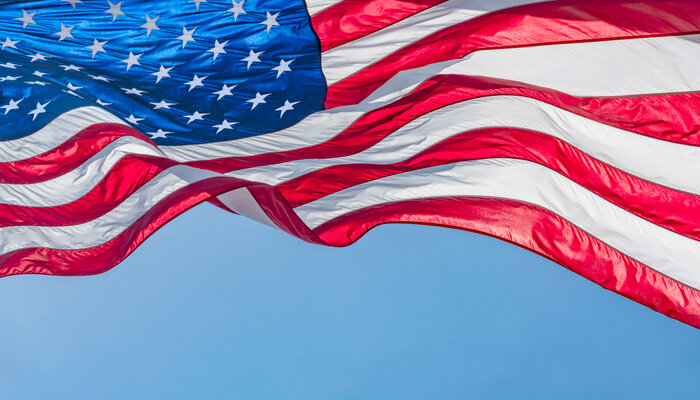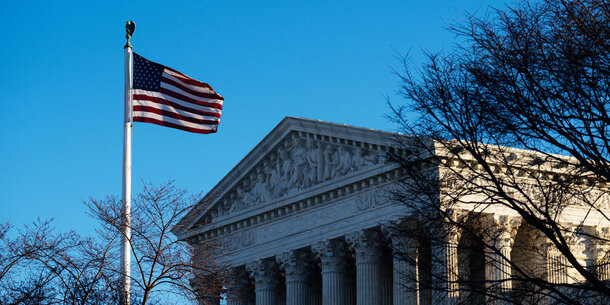July 4 marks the signing of the Declaration of Independence in 1776. The text of its preamble hangs on our office wall. Few of us who work at the Brennan Center today could have been in that room. The men who signed the Declaration were often hypocrites, and many were enslavers. What they wrote, though, was a universalist call for freedom and equality that immediately became a powerful democratizing force.
The American creed it articulated served as an inspiration, a goad, a promise, and at times a rebuke.
Instantly the Declaration was understood to be a radically democratizing document. That year, states began to ease restrictions on voting. Pennsylvania eliminated the property requirement for all men of all races to vote. New Jersey let some women vote.
In some ways, the U.S. Constitution sought to curb those impulses. A recent book called it “the framers’ coup.” The Declaration did not mention slavery and implicitly rebuked it. The Constitution explicitly mentioned and condoned it.
Throughout our history, the Declaration has been used to inspire advocacy. It has been a way to wrap disruptive ideas in patriotic bunting.
In the 1820s and 1830s, abolitionists carried copies of the Declaration in parades.
In 1848, the Seneca Falls convention paraphrased it to include women and to argue for suffrage and other equal rights.
In 1852, Frederick Douglass asked, “What, to the American slave, is your 4th of July? I answer: a day that reveals to him, more than all other days in the year, the gross injustice and cruelty to which he is the constant victim.” (The reactionary Supreme Court fretted in Dred Scott five years later that “created equal” “would seem to embrace the whole human family” but could not actually mean what it said, because slavery would be “utterly and flagrantly inconsistent” with its principles.)
In 1863, in the Gettysburg Address, Lincoln harnessed the Declaration to recast the country. When he began, “Four score and seven years ago,” he dated the creation of the “new nation” to 1776 — not to the Constitution of 1787, as his listeners would have expected. He said the purpose of the war was to test whether any nation so dedicated could “long endure.” And he said that if you agree with the founding creed, then you must end slavery — that would usher in the “new birth of freedom” and “government of the people, by the people, for the people.” (I urge you to read Garry Wills’s book Lincoln at Gettysburg, excerpted here.)
The 14th Amendment wrote that principle into the Constitution itself.
One hundred years later, in 1963, Dr. Martin Luther King Jr. — standing in front of the monument to Lincoln — told us his first “dream” was that “one day this nation will rise up and live out the true meaning of its creed.”
Savvy leaders have harnessed the Declaration’s legitimizing force. Ronald Reagan, Bill Clinton, Barack Obama, and many others did so.
Franklin Roosevelt’s New Deal was seen as a break with the American tradition, and the Supreme Court was busy striking it down, citing the Constitution. FDR delivered his 1936 Democratic convention acceptance speech in Philadelphia. “In 1776 we sought freedom from the tyranny of a political autocracy,” he said. Now industrialism had created a new form of inequality, he explained. “Out of this modern civilization economic royalists carved new dynasties. . . . These economic royalists complain that we seek to overthrow the institutions of America. What they really complain of is that we seek to take away their power.” That, he said, was his generation’s “rendezvous with destiny.”
What is our rendezvous with destiny? Perhaps unexpectedly, we are forced to reckon with the very forces of autocracy decried by the Declaration. We have a continued duty to uphold the Constitution as it has been rewritten over the years to honor equality and freedom. And like FDR, we must extend that American creed to recognize that economic and political equality go hand in hand.
Next year is the 250th anniversary of independence. We at the Brennan Center continue to enthusiastically embrace that American creed — not as a reality but as an aspiration. Vice President JD Vance has said that America is not an “idea.” We disagree. To all of us at the Brennan Center, America is an idea, however tarnished. America is a promise. And we are determined to keep it.



